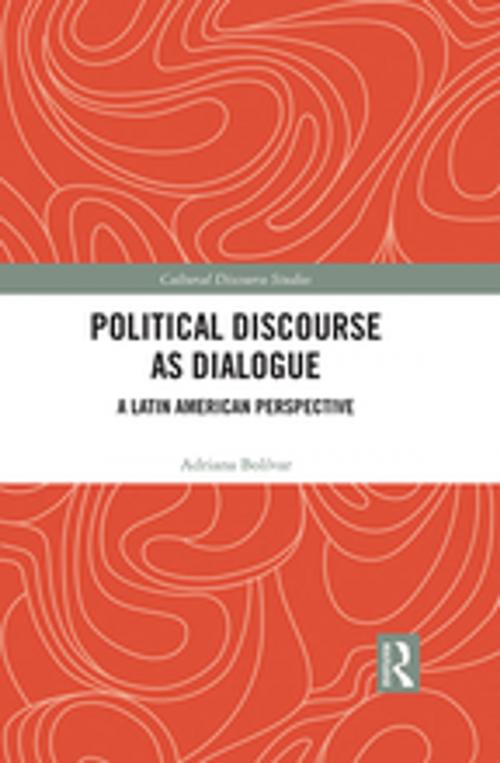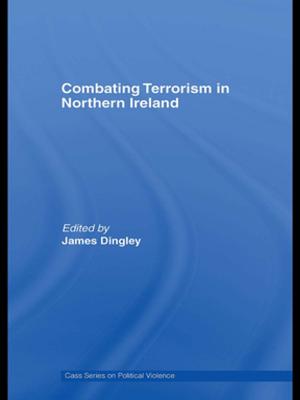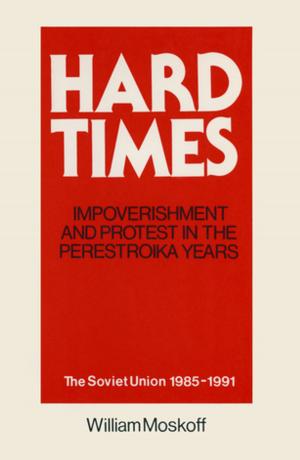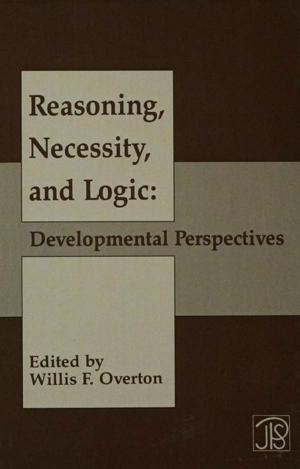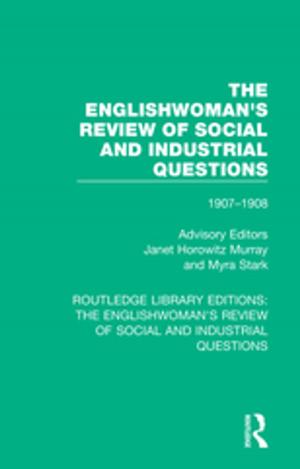Political Discourse as Dialogue
A Latin American Perspective
Nonfiction, Reference & Language, Language Arts| Author: | Adriana Bolívar | ISBN: | 9781317192459 |
| Publisher: | Taylor and Francis | Publication: | October 16, 2017 |
| Imprint: | Routledge | Language: | English |
| Author: | Adriana Bolívar |
| ISBN: | 9781317192459 |
| Publisher: | Taylor and Francis |
| Publication: | October 16, 2017 |
| Imprint: | Routledge |
| Language: | English |
We are witnessing the collapse of democracies in many parts of the world and a general tendency to the resurgence of right-wing and left-wing populisms led by authoritarian leaders. This book centres on the political dialogue in one of these democracies. The focus is on Venezuela, the rich Latin American oil producing country, and its transformation from a stable democracy to a very unstable and controversial revolution in which the dialogue has been occupied by only one party for 18 years. The central characters of the book are Hugo Chávez, who remained in power for 14 years as the main speaker and controller, and the people who either followed or opposed him in Venezuela and other countries. Contrary to critical analyses which are mainly based on social representations that conceive dialogue as implicit or normative, this book proposes a dialogue-centred approach, which articulates linguistics, conversation analysis, socio-pragmatics and political science from a critical perspective, and offers the theoretical foundations and procedures for analysing micro dialogues between specific persons and the macro social dialogue, which unveils the processes of domination and resistance to power. The book will be useful for scholars and students of linguistics, media, communication studies and political science wishing to learn more about dialogue in political interaction.
We are witnessing the collapse of democracies in many parts of the world and a general tendency to the resurgence of right-wing and left-wing populisms led by authoritarian leaders. This book centres on the political dialogue in one of these democracies. The focus is on Venezuela, the rich Latin American oil producing country, and its transformation from a stable democracy to a very unstable and controversial revolution in which the dialogue has been occupied by only one party for 18 years. The central characters of the book are Hugo Chávez, who remained in power for 14 years as the main speaker and controller, and the people who either followed or opposed him in Venezuela and other countries. Contrary to critical analyses which are mainly based on social representations that conceive dialogue as implicit or normative, this book proposes a dialogue-centred approach, which articulates linguistics, conversation analysis, socio-pragmatics and political science from a critical perspective, and offers the theoretical foundations and procedures for analysing micro dialogues between specific persons and the macro social dialogue, which unveils the processes of domination and resistance to power. The book will be useful for scholars and students of linguistics, media, communication studies and political science wishing to learn more about dialogue in political interaction.
